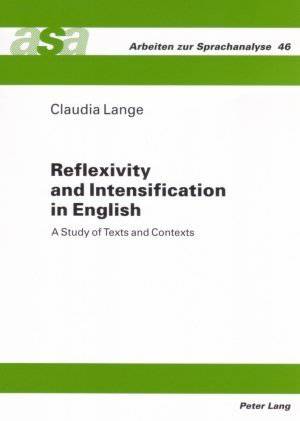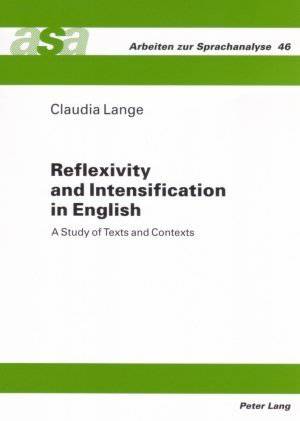
- Afhalen na 1 uur in een winkel met voorraad
- Gratis thuislevering in België vanaf € 30
- Ruim aanbod met 7 miljoen producten
- Afhalen na 1 uur in een winkel met voorraad
- Gratis thuislevering in België vanaf € 30
- Ruim aanbod met 7 miljoen producten
Zoeken
€ 135,95
+ 271 punten
Omschrijving
Present-Day English is unique among the Germanic languages in employing the same forms (himself, herself etc.) both as reflexive pronoun and intensifier. While a lot of attention has been directed at the grammaticalization of the compound reflexive, the emergence of the compound intensifier has remained largely mysterious. This study is a detailed investigation of the domains of reflexivity and intensification throughout the history of English. It provides a comprehensive analysis of the possible source contexts for SELF-forms in Old and Middle English. Backed up with a wide range of data from early Middle English, the compound intensifier is traced to discourse-pragmatic motivations: expressive strategies linked to specific discourse traditions become rapidly grammaticalized once the former Old English standard gave way to large-scale variation in Middle English.
Specificaties
Betrokkenen
- Auteur(s):
- Uitgeverij:
Inhoud
- Aantal bladzijden:
- 208
- Taal:
- Engels
- Reeks:
- Reeksnummer:
- nr. 46
Eigenschappen
- Productcode (EAN):
- 9783631543573
- Verschijningsdatum:
- 18/12/2006
- Uitvoering:
- Paperback
- Formaat:
- Trade paperback (VS)
- Afmetingen:
- 148 mm x 210 mm
- Gewicht:
- 267 g

Alleen bij Standaard Boekhandel
+ 271 punten op je klantenkaart van Standaard Boekhandel
Beoordelingen
We publiceren alleen reviews die voldoen aan de voorwaarden voor reviews. Bekijk onze voorwaarden voor reviews.








